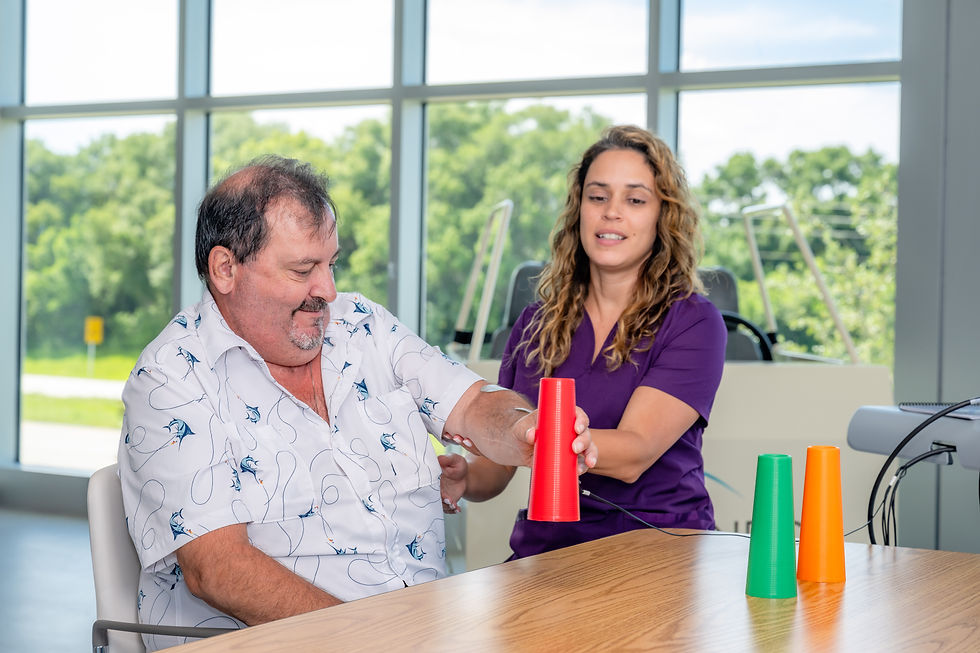Acting F.A.S.T - Stroke Awareness Month
- Indianapolis Rehabilitation Hospital
- May 20, 2021
- 2 min read
Updated: May 25, 2021
Acting F.A.S.T
May is Stroke Awareness Month
If the blood supply to part of your brain is interrupted or reduced, tissues are deprived of oxygen and nutrients. If this happens, your brain cells will begin to die within minutes. This event is a stroke and is a medical emergency.
Strokes are serious medical emergencies that can result in an array of disabilities or death in more severe circumstances. Almost 800,000 Americans suffer a stroke each year. Around 140,000 of these emergencies are fatal. Stroke is the No. 4 cause of death in women and kills more women than men. In fact, one in five women has a stroke.
Compared to years past, we understand how to treat a stroke quickly. Fewer Americans die of strokes as medical advancements have improved, and stroke awareness has increased.
May is National Stroke Awareness Month. American Stroke Association’s goal is to convey that you can ‘Save a Life’ if you see a person experiencing a traumatic event like a stroke.
An easy way for anyone to remember the symptoms of a stroke is an acronym called F.A.S.T
F = Face Does the face droop on one side? easily seen when the person tries to smile
A = Arm After raising both arms, does one of the arms drift downward?
S = Speech After repeating a simple phrase, does the person’s speech sound slurred or strange?
T = Time If you observe any of the above, call 9-1-1 immediately and request medical assistance. Do not drive the person to a local E.R. or physician office
In hospitals, a longer acronym is B.E.F.A.S.T with the added letters of B for Balance: sudden loss in balance -leaning to one side or staggering and E for Eyes: sudden loss of vision in one or both eyes or no peripheral vision
Other symptoms
People have also shown symptoms such as numbness or weakness of the arm, leg, face, sudden confusion, and severe headache.
Do not wait! Call 9-1-1 if you or a loved one experiences any of the symptoms mentioned above. When treatment is initiated quickly, the more likely for survival and the least amount of complications.
Medical Advancements:
Recent advancements in treatment may minimize the long-term effects of a stroke or even prevent death. The most commonly occurring type of stroke is ischemic, caused by a blockage of blood flow to the brain. Administering Alteplase IV r-tPA, an FDA-approved drug dissolves the clot and improves blood flow to the impacted part of the brain. If administered within three hours, this clot-dissolving drug improves the chances of recovering from a stroke.
Rehabilitation
After being stabilized in an acute care hospital, studies have shown patients who transfer to an inpatient rehab hospital have higher functionality and more significant opportunity to return home. Upon opening in the Fall of 2021, Shreveport Rehabilitation Hospital offers a multidisciplinary team of professionals, offering three hours a day of physical, occupational, and speech therapy. Our team will help educate the patient and loved ones during the inpatient rehab stay and help them prepare for when the patient is released from the hospital.
Remember F.A.S.T. and save a life! #relentlesstogether
See our Stroke Awareness blog around more information on actions towards preventing a stroke.

Image via stroke.org











